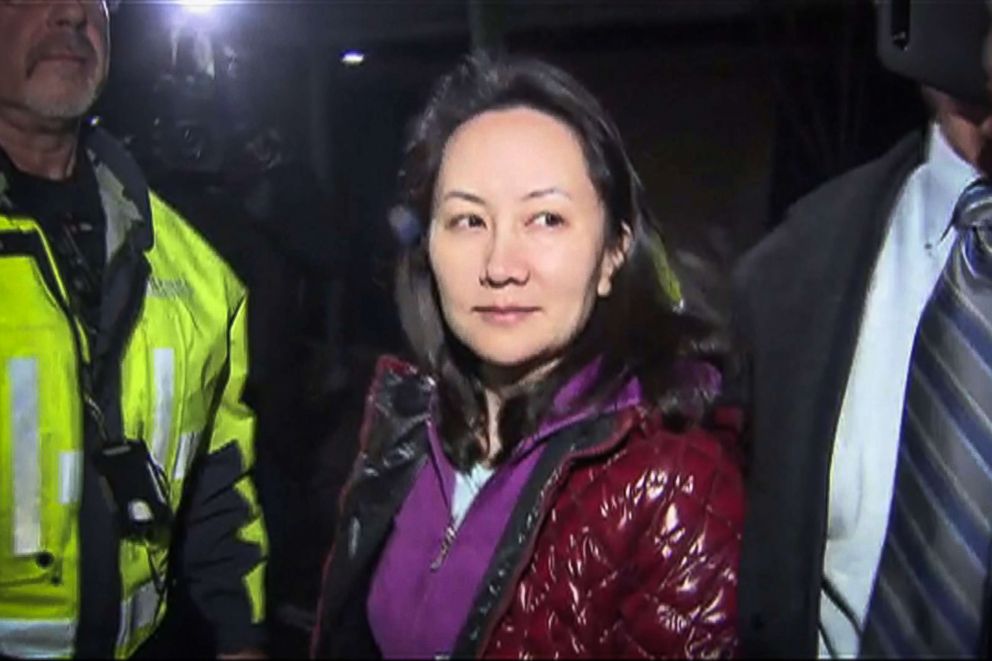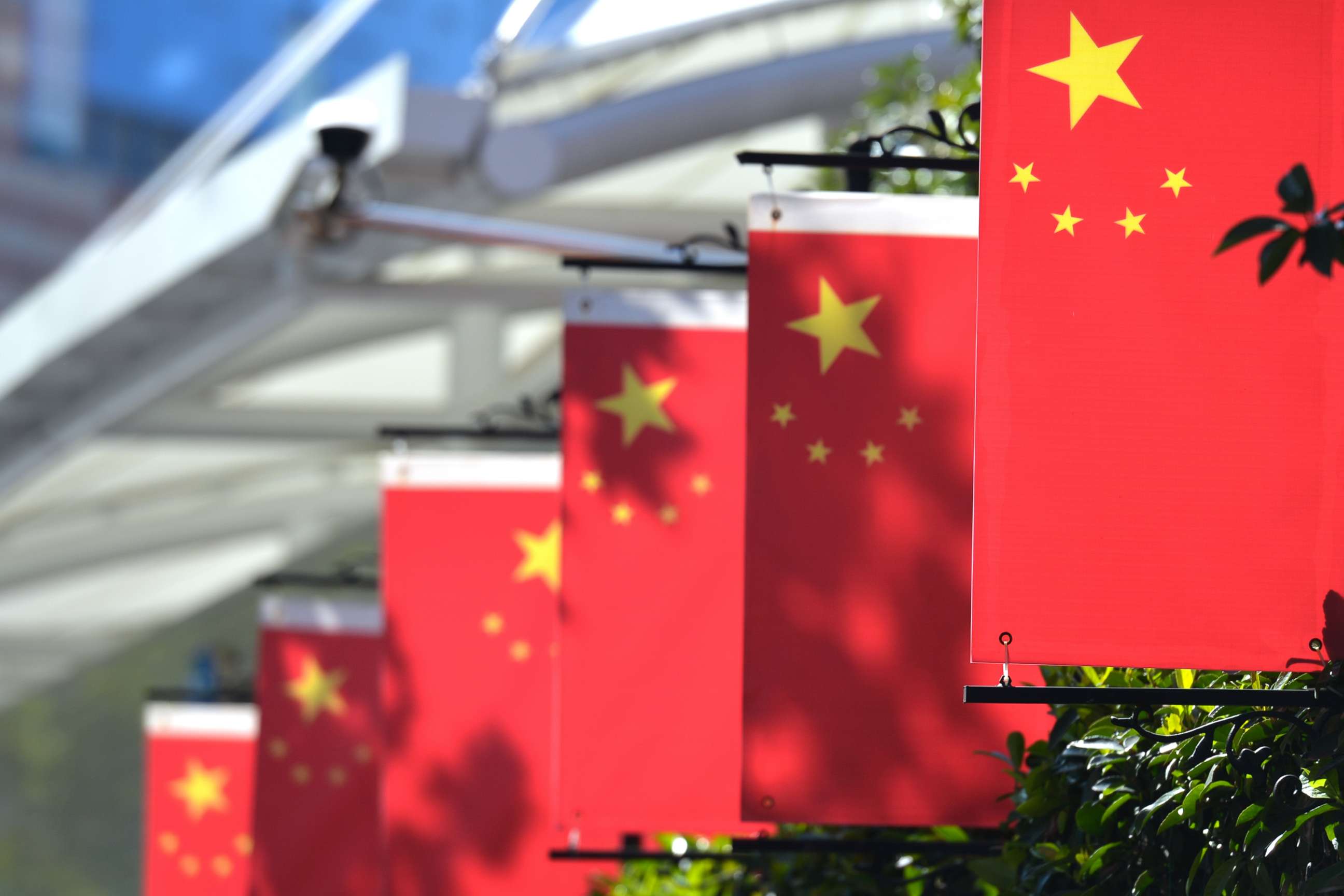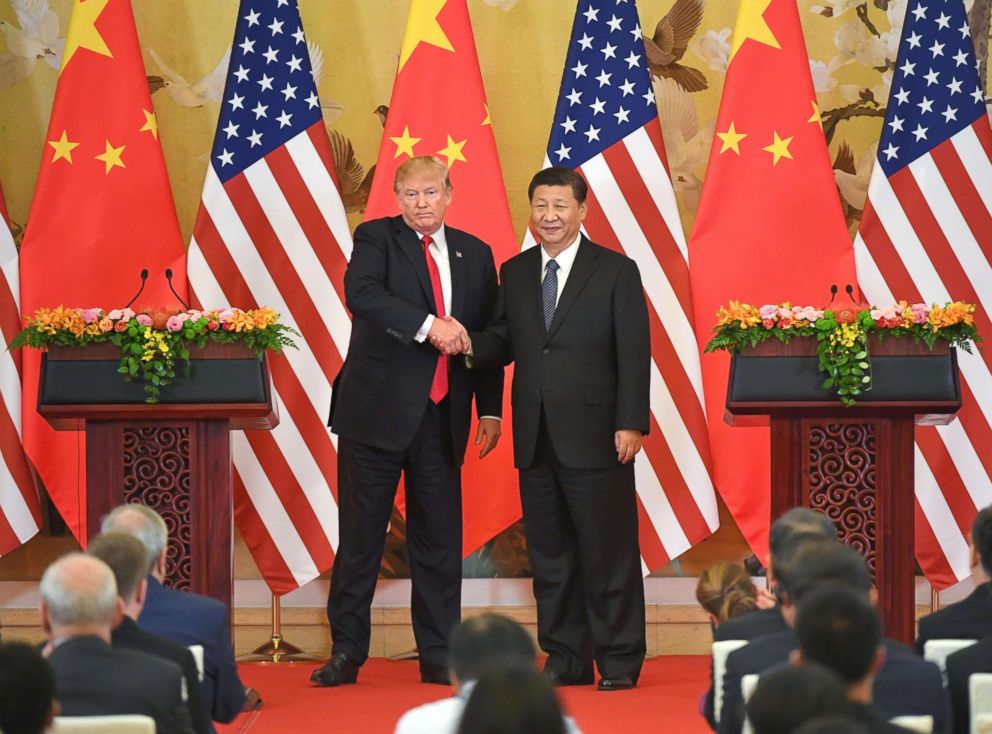Pompeo calls Canadians' detention in China 'unlawful' amid tensions over Huawei CFO's arrest
China acted after the arrest of a Chinese tech executive in Canada.
Secretary of State Mike Pompeo on Friday called the detention of two Canadians in China "unlawful" and said "they ought to be returned."
China's arrests of the two Canadians -- a diplomat and a businessman -- come after Canada arrested Meng Wanzhou, the CFO of Chinese telecom giant Huawei, on a U.S. arrest warrant. She is free on $10 million bond while a Canadian judge decides whether she will be extradited to the U.S.
Speaking alongside Canadian Foreign Affairs Minister Chrystia Freeland, Pompeo said the U.S. is working to help get the Canadians returned, but did not provide details.

It was welcome support for Freeland, whose government has become collateral damage now that China appears to be engaging in hostage diplomacy, according to some analysts. But Freeland also had some strong words about defending the rule of law in Meng's extradition case, days after President Donald Trump told Reuters he would "certainly intervene" to aid U.S. trade talks with China.
"We ask all nations of the world to treat other citizens properly and the detention of these two Canadian citizens in China ought to end," Pompeo said Friday.
He denied that Meng's arrest was related to those U.S.-Chinese trade tensions, saying the U.S. was engaged in a legal process and seeking a "just outcome."

Citing the various issues in U.S.-Chinese relations, Pompeo added, "We work on each of those to get good outcomes for the people of the United States of America and respecting the rule of law each step along the way. We'll do that here as well."
Meng and her company Huawei are accused of using a subsidiary to violate U.S. sanctions on Iran and lying about it to investors and financial institutions. She was arrested on December 1 in Vancouver and was released on $7.4 million bail this week, remaining under 24-hour surveillance with a curfew and an ankle bracelet in Canada.
Canada also sought to separate the issues, with Freeland saying the country "was not making a political judgment" when it detained Meng, but rather was honoring its extradition treaty with the U.S. and upholding the rule of law.
Canada has acted "scrupulously in line with our treaty commitments and in line with the rule of law," she added.
But that's been thrown into question by Trump's comments to Reuters Tuesday, saying, "If I think it's good for what will be certainly the largest trade deal ever made -- which is a very important thing -- what's good for national security -- I would certainly intervene if I thought it was necessary." The U.S. and China are preparing to negotiate trade and other economic issues after Trump and Chinese President Xi Jinping agreed to hold off on tariff increases during a meeting at the G20 in Buenos Aires, Argentina, last month.

Freeland subtly dug back at Trump, repeatedly highlighting Canada's commitment to due process and the rule of law and saying, "Canada understands that the rule of law and extradition issues ought not ever to be politicized or used as tools to resolve other issues."
But she later seemed to defend the U.S., too, saying it and Canada share the same values: "In both countries, we have a deep regard for the rule of law and strong and independent judiciaries."
U.S. Department of Justice officials have said they will only "follow the facts" and "vindicate violations of U.S. law."
When pressed about what seems to be Chinese hostage diplomacy, she said that "Chinese officials in their contact with Canada have not drawn a connection between these different issues."
Canada's ambassador was able to visit one of the detained men -- Michael Kovrig -- but Freeland declined to comment on his status, citing his privacy. She said the Canadian government is "very, very seized of the issue, we're very concerned about these two Canadians."




